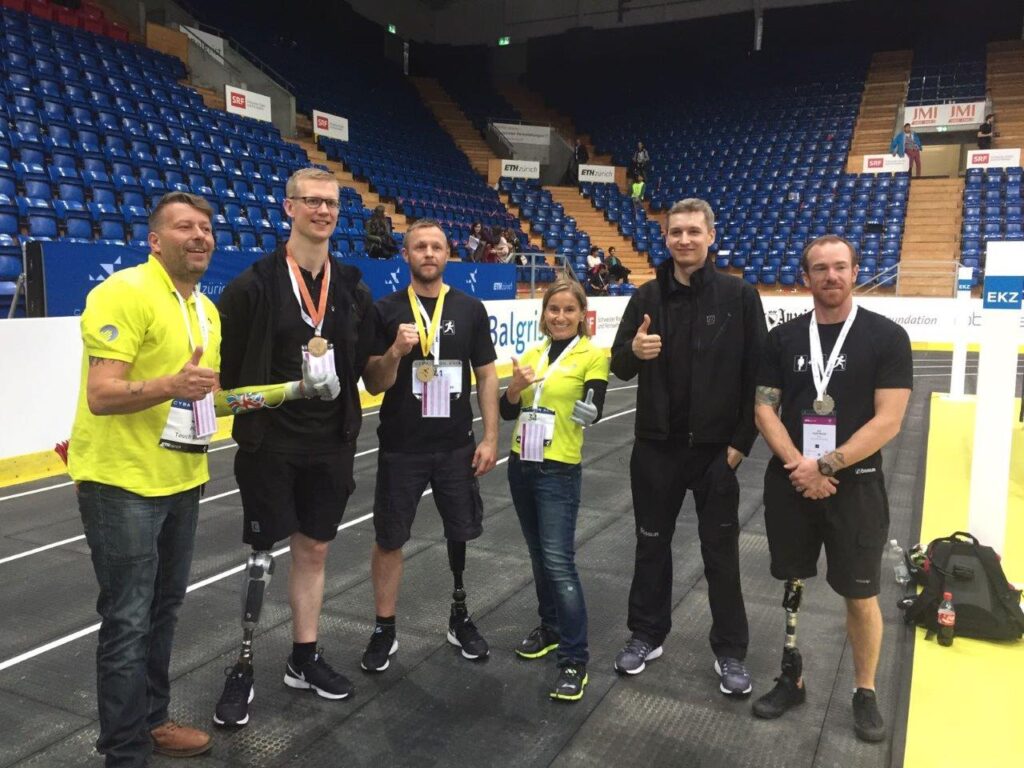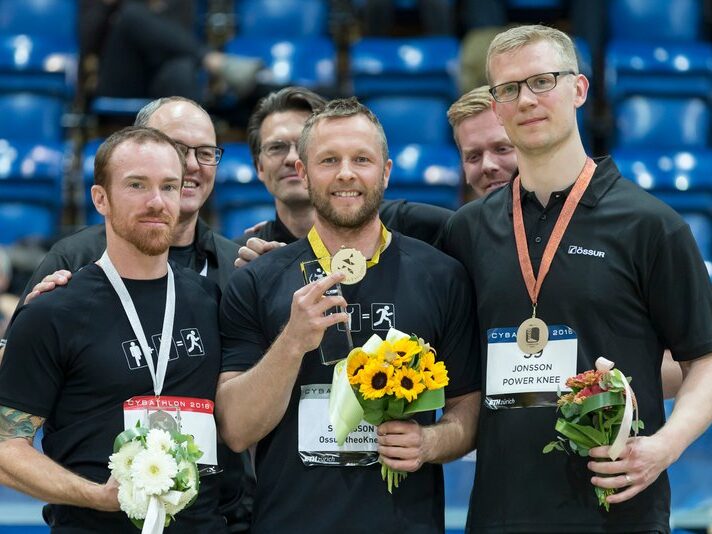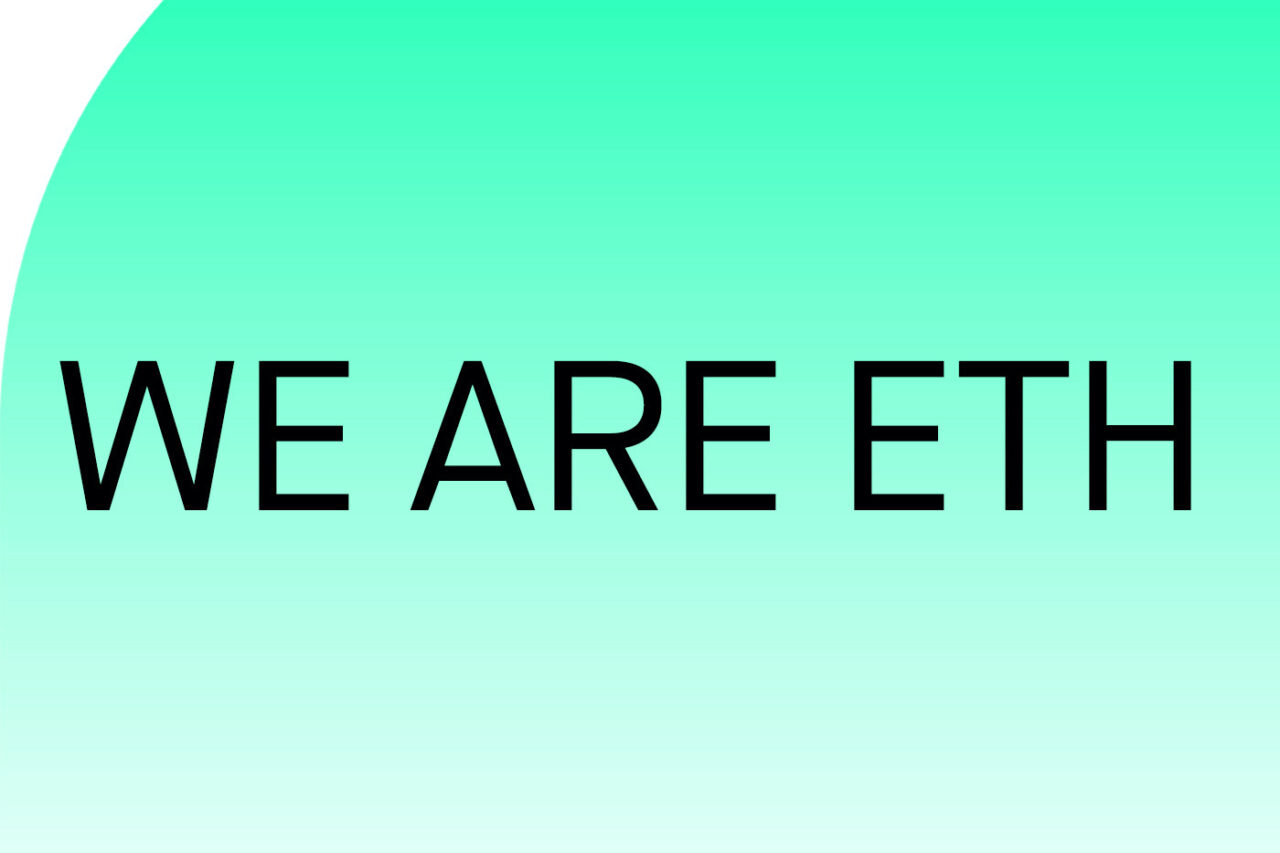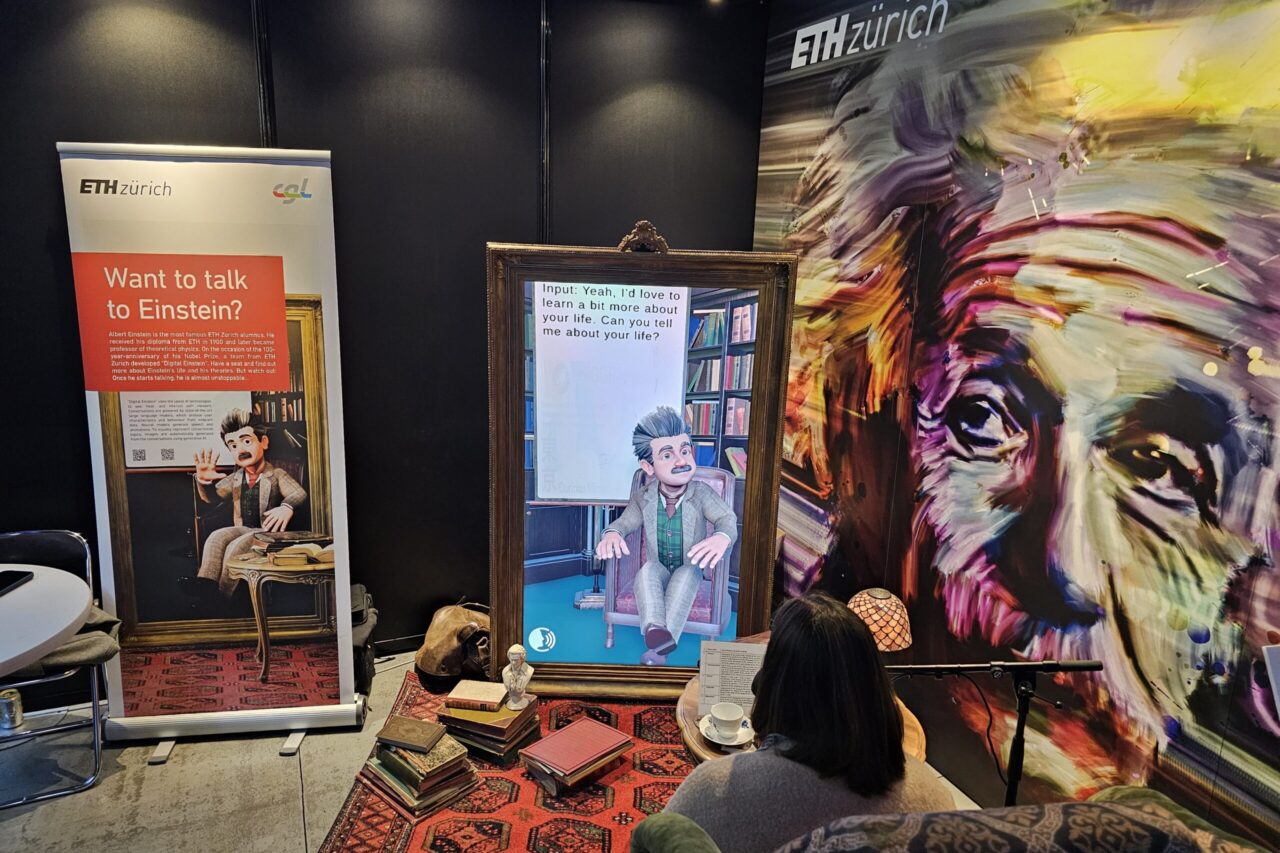Three out of Team Össur’s four pilots – a.k.a. Cybathlon competitors - took home medals in the 2016 competition. Helgi Sveinsson an above the knee amputee, Paralympian, and all-around athlete with an affinity for golf - took home the Gold medal at the world’s first Cybathlon in just 64 seconds. Silver and Bronze medals went to Össur’s Billy Costello and David Jonsson. The team’s fourth competitor, Lukas Kalemba piloted an experimental prototype placing 9th in the race.
Life without limitations
by Marianne Lucien, 13 Febuary 2020
Icelandic pioneers of prosthetic technologies, Össur dominated the Powered Leg Race during the world’s first Cybathlon.
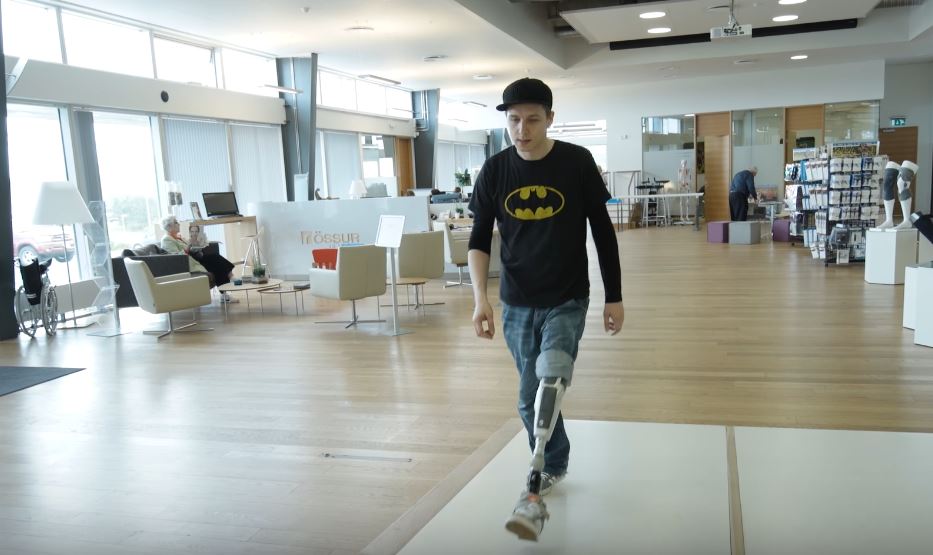
Lukas Kalemba at Össur. Source: Engadget
Last, but not least
Kalemba not only pilots new technologies, but works as a prosthetic technician for Össur – a company that prides itself on creating a “life without limitations” for amputees around the world. Specializing in prosthetic knees, Kalemba brings both personal and clinical experience to the research and development table. In an episode of Engadget’s series, “Superhumans: Inside the world's first cyborg games” he opened up about the circumstances that led to the amputation of his leg and the physical, mental, and social challenges of getting on with life.
Life after near death
"So…I lost my leg when I was 19. I was walking home with some friends after a night of partying and drinking in Dortmund, Germany, in 2003. While crossing a bridge along the way, I stopped to rest, but lost my balance and fell over. In an attempt to break the fall, I instinctively reached out and grabbed a wire that stretched across. It kept me from falling 20 feet to the ground immediately, but the wire sent a high-voltage current through the left side of my body, causing irreparable damage to my leg…
The mental challenges at the beginning were really hard. Just go(ing) out again and meet(ing) friends…that was, at the beginning, the hardest thing...Everything is actually a little bit harder…"
Is new tech up to the task?
Gearing up for CYBATHLON 2020, the pilots from team Össur will surely present some tough competition, but the real competition is not how well the pilots perform - it is how well the technology measures up to the tasks of daily life. Things that most people take for granted such as standing up from a sofa, climbing up and down steps, and navigating rough terrain present a tremendous challenge to someone with a prosthetic leg. In the CYBATHLON 2020 competition, pilots will have to also concentrate on secondary activities such as balancing objects or carrying crates while walking. The new race challenges demonstrate whether a leg prosthesis allows a pilot to walk naturally and symmetrically.
The Cybathlon is about pushing the limits of assistive technologies, but it still has a long way to go. Nevertheless, "We would not be where we are right now with the powered leg, if it were not for the event," Kalemba said. "It's very hard to imitate the knee joint with technology, but we are really close and we are getting closer with every generation as we are evolving."
Further information
Cybathlon 2016 Powered Leg Prosthesis Race
Cybathlon 2020: More than just a competition (press release)
How One Man’s Superhuman Feat Inspired the World
Cybathlon 2020 (website)


